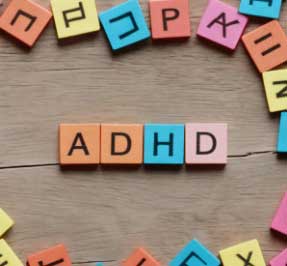How is Coaching Different from Therapy?
Therapy focuses on healing and unresolved psychological issues of the past.
Coaching begins with the “now” and assists clients in setting very clear, and specific goals that they want to achieve in the future.
A common misconception is that coaching and therapy is the same, when they are in fact quite different. Therapy is focus towards helping people recover from emotional or other psychological disorders such as anxiety or depression. Where coaching is intended to help normal, healthy individuals achieve their personal goals such as increasing happiness, weight loss, and a more balanced work-life.
Counseling is only meaningful if it addresses past experiences for the explicit purpose of transforming your present experience in a way that leads to a future that is more fulfilling than the past.
Life Coaching may not be able to take you to the future you desire, unless some of your experiences from the past are sufficiently addressed.
It must also be understood that there are various approaches to counseling. It is clearly recognized that whatever the effects may be from past experiences, those effects are fully present in the here and now, and therefore it is not usually necessary to dig into the past. Past experiences can be dealt with by addressing how they are manifesting in the present and thus the effects of the past can be transformed.
Most life coaches don’t have the necessary training for doing “the counseling part” of the work that may be needed with you, and they will then take the position that this work is not important, but this is not the case. When a life coach has training, skills and experience for helping you do deeper emotional-psychological explorations of who you are and of what motivates and drives you, the outcome of your work will be much more fulfilling and deep-reaching than it would otherwise be.
In reality, it is quite common that successful counseling after some time gradually begins to take on more and more of the qualities of Life Coaching; we are no longer working on sorting out the problems, but are searching into how to make what is just okay even better. As often the case that Life Coaching identifies an obstacle to living the life you want, without addressing and overcoming “a problem” by use of counseling or psychotherapy.
Often Good Life Coaching and good counseling are overlapping and complementary to one another. At least if you find yourself a counselor/life coach who has the skills required to span the whole spectrum of personal growth and development.
A life coach isn’t smarter, or better, or even more experienced in life than you. A life coach simply has a more thorough understanding of how the brain works, and is extremely good at helping you direct your thoughts in a way that helps you consciously understand what drives you on a deep level, and then takes a real world action to align with that.
The life coach’s experience lies in asking the right questions to help you elicit all the right answers from your minds subconsciousness. Think of the answers from your subconscious mind like big shiny gems, and the life coach as a friendly prospector who lends you their expertise in locating and extracting those gems.
Who is life coaching for?
Here are some signals you would benefit from hiring a life coach:
- you’re not happy with your current life situation, but aren’t sure what to change
- you have trouble getting and staying motivated
- you have goals, but find it hard to keep on track ( procrastinating)
- you have something important in your life that you keep thinking about, but never taking action
Who is life coaching NOT for?
Here are a some reasons life coaching might not be for you:
- if you have trauma or deep psychological problems
- you expect to spend hours looking deep into your past
- you feel it would be nice to change something in your life, but you can’t really be bothered to take action
To redefine:
Coaching
- Client is psychologically and emotionally healthy
- Focuses on the present and future
- Driven by goals and taking action
- Works toward a higher level of functioning
- Where would you like to be and how can you get there?
- Results are based and focused on exploring solutions
- Coach and client collaborate on solutions together
- Done over the phone, internet or in person
- Contact between sessions expected
Therapy
- Client is emotionally unwell and is in need of emotional healing
- Focuses on dealing with the past
- Driven by unresolved feelings and issues
- Works toward achieving understanding and emotional healing
- Explores the root of the problems and offers explanation
- Absorbs information
- Therapist asks, “How did that make you feel?”
- Done in an office setting
- Therapist is the ‘expert’
- Contact only between sessions for crisis and difficulties




